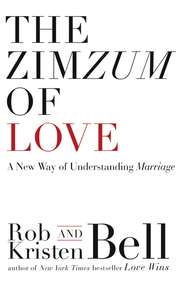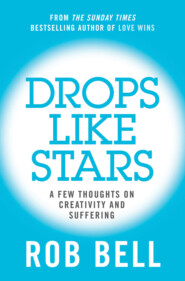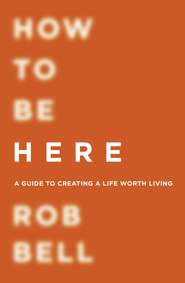По всем вопросам обращайтесь на: info@litportal.ru
(©) 2003-2024.
✖
The Complete Rob Bell: His Seven Bestselling Books, All in One Place
Автор
Год написания книги
2018
Настройки чтения
Размер шрифта
Высота строк
Поля
8 (#ulink_02eb4e2a-589e-5e13-b468-32f0374632dd) Colossians 3:7; see also Ephesians 4:20–24.
9 (#ulink_cdbc88c0-d2c7-5700-bc69-6149d7aae659) 2 Corinthians 5:17.
10 (#ulink_b185845a-5575-57c5-b428-1e62c0f7671d) Hebrews 2:10; 5:9.
11 (#ulink_9555c1ed-9dbe-5d67-9272-93b7d49460b7) Colossians 3:12.
12 (#ulink_951aee80-449e-5063-85ce-b7f2f8a12b28) Philippians 3:16.
13 (#ulink_20051f67-e254-511e-be09-49bdc1e48268) Romans 8:1.
14 (#ulink_1c232d31-4396-5a4d-bac9-ccd742c43291) John 17:21.
15 (#ulink_f5faef18-9c04-59d0-9429-b08c38bc1eb8) Romans 6:11.
16 (#ulink_d6536591-def8-566c-9fd2-b7999978350c) John 5:24.
17 (#ulink_9949d0f5-f10f-5bc4-8ae5-3edf28a19ac3) You must read The Divine Conspiracy by Dallas Willard (San Francisco: HarperSanFrancisco, 1998).
18 (#ulink_80f4ddbf-f971-58d5-a24c-10883bcb3904) I heard Stuart Briscoe say this to a group of people in Milwuakee in 1997.
19 (#ulink_80f4ddbf-f971-58d5-a24c-10883bcb3904) “Sin management” is a term Dallas Willard deals with extensively in the second chapter of his book The Divine Conspiracy, which everybody should have read by now.
20 (#ulink_71623ec1-134a-5819-841c-d4c32226ce90) Luke 15:11–31.
21 (#ulink_19ec1a65-dacb-5e07-a0fd-a073581a7685) Romans 5:8.
22 (#ulink_cf19f903-a78a-5345-aa00-e14d3610d07d) Revelation 5:9.
23 (#ulink_1e7c2092-aa90-5038-beec-dbb1f8e4bf16) John 12:32.
24 (#ulink_1fee85b8-9a5b-5dd1-a514-d9e79109a65c) See Colossians 1:20.
25 (#ulink_06d81a61-e224-52d3-ad35-08c002b77e92) Matthew 25:31–46.
26 (#ulink_6ec75a84-bf77-5d92-a860-798414a95040) Genesis 3:8–9.
27 (#ulink_6ec75a84-bf77-5d92-a860-798414a95040) Exodus 25.
28 (#ulink_6ec75a84-bf77-5d92-a860-798414a95040) John 1:14 in The Message (Colorado Springs: NavPress, 1993).
29 (#ulink_505d22be-1c2d-5557-838f-2abc96c6b837) 1 Corinthians 6:19; Ephesians 2:21–22.
30 (#ulink_505d22be-1c2d-5557-838f-2abc96c6b837) Revelation 21–22.
31 (#ulink_2d04add7-99d0-5134-b4c6-b7dbd4674b4a) Matthew 4:17.
32 (#ulink_444c7495-fba4-5e34-84f1-17fc786d08b7) Romans 8:37–39.
MOVEMENT SEVEN: GOOD
1 (#ulink_282593c2-a3ed-5f87-9a17-dcee1a89a8a0) John 20:15.
2 (#ulink_85613740-c810-519b-b58c-317536d78fcc) Take, for example, the genealogy that begins the book of Matthew. It appears to be a list of people who did a lot of begetting. But there’s something else going on here. The greatest king of the Jews was David. In Hebrew, that’s spelled DVD. D is the fourth letter in the Hebrew alphabet, so it has the numerical value of 4. V is the sixth letter, so it has the value of 6. DVD is therefore 4 + 6 + 4, which gives the name David the number value of 14. Matthew groups the names in his genealogy in groups of . . . 14. So a Jew reading the introduction to his book, which is telling something about Jesus’s family, would read king, king, king, king, king. Matthew has an agenda here. He wants you to see who he thinks Jesus is.
3 (#ulink_4a2bea5b-d413-5c22-8b2c-d83562410d83) Romans 5:12.
4 (#ulink_4a2bea5b-d413-5c22-8b2c-d83562410d83) Acts 2:24.
5 (#ulink_d7217df3-0f5f-54fc-8d5f-f57029339eeb) For a mind-blowing introduction to emergence theory and divine creativity, set aside three months and read Ken Wilber’s A Brief History of Everything (Boston: Shambhala, 2001).
6 (#ulink_7d616bb1-7523-53d1-8dca-f7602378d807) A writer who has helped me in understanding this difference between good and perfect, and more important, between Greek and Hebrew thought, is Thorleif Boman. His book Hebrew Thought Compared with Greek (New York: Norton, 2002) has been very helpful. Brian McLaren also writes about this in The Story We Find Ourselves In (San Francisco: Jossey-Bass, 2003). I love his explanation of the Genesis account of creation. Or should I say Neo’s?
7 (#ulink_732ea863-51f5-5699-88c8-fcfa3da5b049) See Cornelius Plantinga’s book Engaging God’s World (Grand Rapids: Eerdmans, 2002).
8 (#ulink_fec4a8a6-5d03-51bb-968d-b26bf6d9ad87) Romans 8:22.
9 (#ulink_30ddeeb7-6a0c-5427-a1ea-a7d026595fe7) Isaiah 66.
10 (#ulink_45ce8fa1-f8f6-5d6a-87d1-56929f3e1081) Matthew 19:28.
11 (#ulink_5b26194c-a6a8-55ef-8d4f-be806d841ae9) Acts 3:21.
12 (#ulink_0d753cb5-15a4-510f-bde7-8461ce73d422) Colossians 1:19–20.
13 (#ulink_ef94b626-a1b8-54db-8c66-aac9b0495faa) 1 Corinthians 15:20.
14 (#ulink_28555735-1aa8-517e-a95b-609f2303ecc9) Christ and the Caesars by Ethelbert Stauffer (London: SCM, 1952) is the best book I have come across on Jesus and the Roman Empire. Stunning piece of work. I’d also recommend Richard Horsley’s Jesus and Empire (Minneapolis: Fortress, 2003).
15 (#ulink_25d3a779-3eef-5415-8dd0-d48c68340d52) Acts 4.
16 (#ulink_b7bf7899-f2d4-53a1-8b80-d9fb2eebfbef) It’s interesting that the word church was originally used by Christians as an intentionally political statement about who rules the world.
17 (#ulink_b7bf7899-f2d4-53a1-8b80-d9fb2eebfbef) Acts 4:12.
18 (#ulink_cef837c6-fc59-574c-a76e-ee0d5997436c) Galatians 3:28.
19 (#ulink_cef837c6-fc59-574c-a76e-ee0d5997436c) Thomas Cahill talks about this fact in The Desire of the Everlasting Hills (New York: Anchor, 2001). This is one of the best books I’ve read about the early church.
20 (#ulink_83ccc421-fb94-5695-8329-22f6279b8123) Acts 4:34.
21 (#ulink_739d4456-879c-5f5d-a6d1-81b78618bc55) 1 Corinthians 15.
22 (#ulink_739d4456-879c-5f5d-a6d1-81b78618bc55) For an example of this, find a book on Greek mythology and look up Dionysus, also called Bacchus.
23 (#ulink_739d4456-879c-5f5d-a6d1-81b78618bc55) The entire book of Acts.
24 (#ulink_2d1a052e-755b-5841-8249-fbf8e8befa64) At first he is called Abram, but then God changes his name to Abraham. See Genesis 17:5.











